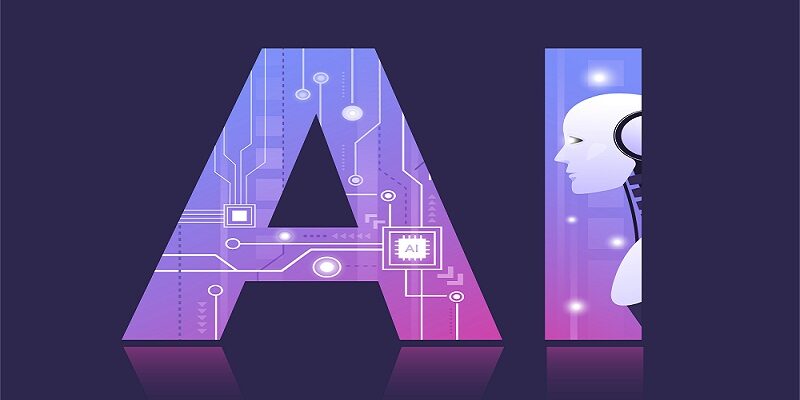UiPath recently announced the top five trends in Artificial Intelligence (AI) and automation that will transform the Indian workforce in 2024. 2023 was the year of AI hype, and 2024 will be the year when we realize the full potential of AI.
Arun Balasubramanian, Vice President and Managing Director, India and South Asia, UiPath said, “In the realm of digital transformation, the synergy between automation and AI is unlocking unprecedented value for enterprises worldwide. This isn’t merely about scaling up automation; it’s about unleashing the full potential of these technologies to revolutionize how we work. As we navigate the evolving landscape, it’s clear that the future lies in the seamless integration of AI and automation.”
“The future belongs to those who harness the power of AI and automation to navigate complexity, allowing a dynamic collaboration between human ingenuity and robotic efficiency. Navigating through the AI landscape has become more efficient through evolving technologies such as process mining, task mining, and co-pilots. As we pioneer safe AI, we’re shaping a future where enterprises thrive through innovation, efficiency, and the harmonious collaboration of people and machines,” Balasubramanian added.
Trend One: LLMs power virtual BFFs
According to the UiPath Automation Generation Survey 2023, elder Indian employees are more receptive to the potential of AI-powered automation in helping them at work: 91% of Baby Boomer respondents think that automation would help them do their jobs better, while 87% of Generation Z, 86% of Millennial, and 84% of Generation X (84%) respondents feel similarly.
These sentiments would echo through 2024, as enterprise software providers are already integrating Large Language Models (LLMs). One notable application is copilots—virtual desktop assistants that comprehend individuals’ work contexts and tasks, communicating in plain language. Like the best human assistants, these copilots can rapidly learn to auto-complete various activities and proactively enhance workflow efficiency. UiPath, for example, incorporates Autopilot™ into tools for various users, streamlining tasks like data entry and email management. With such significant developments, LLMs and Gen AI solutions are all set to reinvent how we work with machines and usher in a new boom in global productivity.
Trend Two: Safe AI becomes a focus of action and innovation.
The C-suite will prioritize countering AI risks, emphasizing safe AI to improve the risk/benefit equation. Expect a significant acceleration in AI governance adoption, with enterprise software companies integrating robust AI controls. Technology providers will enhance human-in-the-loop capabilities for improved human review. In 2024, organizations are shifting from aspirational to implementation phases, driven by innovative approaches. The Indian government already emphasizes innovation and is formulating policy frameworks like the National Artificial Intelligence Strategy for responsible AI adoption, highlighting a commitment to transparency and accountability.
Trend Three: The C-suite seizes AI’s value with the help of automation.
Today, executives are exhilarated by the potential of AI to drive growth, and innovation, and revolutionize various aspects of work, enhancing productivity in unprecedented ways. In 2024, their primary focus will shift towards translating the potential of AI into tangible returns. Per a Nasscom report, AI adoption is poised to add $500 billion to India’s GDP by 2025. Automation is proving to be a swift enabler of various AI benefits. As companies in 2024 zero in on realizing their AI ambitions, they will increasingly turn to enterprise automation to facilitate the achievement of their objectives.
Trend Four: The transparent organization comes into focus—end-to-end. Process and task mining are shining; digital twinning is winning.
Until recently, enterprise managers grappled with poor visibility into end-to-end work processes, hindering problem diagnosis and issue resolution. Process intelligence, powered by AI in advanced process, task, and communications mining, has transformed this landscape. Now, organizations can continually monitor and evaluate processes comprehensively, gaining insights and identifying optimal solutions for efficient workflows. Leading innovators are even creating “digital twins” of their operations, providing dynamic real-time visibility, and modeling potential workflow improvements before implementation. This innovation is anticipated to drive increased adoption in 2024 and beyond.
Trend Five: Redefining work by building new relationships with machines.
The rise of large language models (LLMs) is expected to significantly impact the future of work, with the potential to automate up to 30% of current tasks by 2030. As LLMs continue to advance, they will likely be applied in various professions, and the workforce will need to adapt to new roles and responsibilities. Key areas of focus for thought leaders, policymakers, and education professionals include learning from professions further along the adoption path, addressing the labor implications of a virtual workforce, and redefining the best skillsets for the future. By 2024, these efforts will begin to reshape the workforce, requiring workers to develop new skills and adapt to new roles, while also addressing the needs and views of employees, employers, unions, governments, and the public at large.







